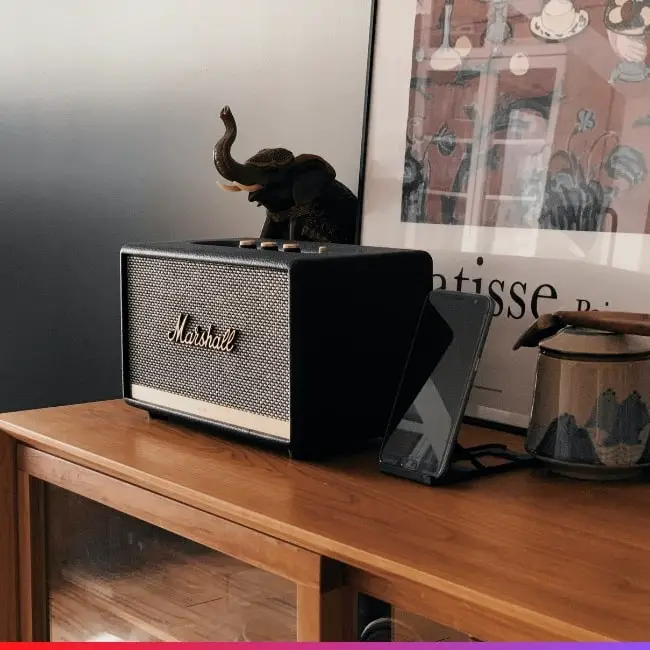
Can you truly work without a musical backdrop?
While music can add zest to mundane tasks, it might distract from intensive work. For those used to jamming while jotting, working in silence can be a daunting shift. But it’s worth exploring a world without background melodies. Dive into how you can boost productivity sans tunes. Ready to embrace the sound of silence? Let’s delve in!
Can Music Improve Your Work Performance?
Music is powerful. It can make you feel awake or sleepy, help you run faster and work harder, dramatically influence your emotions and mood, and make a horrible day so much better. But it can also send you down the daydream path when you really should focus on that work project. Known as the irrelevant sound effect, the way background music influences your busy brain can make you less effective at your work. It’s quite similar to people chatting around you or your pesky neighbors doing construction work – it’s simply distracting. Sounds that are not related to the center of your focus can make your memory worse, or completely take over your attention once that enchanting guitar solo comes up. Some people claim that music helps them focus on their work, and sometimes, it might be true. For example, some highly skilled surgeons famously listen to rock classics in the operating room, and athletes and manual workers feel upbeat music increases their endurance and energy.

Music is powerful, but it can also be distracting.
Artists may get a creative boost from this classical piece, and designers frequently blast their favorite tunes while working. But it doesn’t work for everyone.
Specifically, how much music puts you in the zone depends on:
- Your line of work
- Your skill level
- The type of music you listen to
When Music Makes You Crash (Your Car)
When drivers need to park, figure out the best route, or avoid traffic, they often turn down the music volume “to see better”. This sounds weird, but the effect is very real. Instead of “seeing” better, what happens is that drivers can devote more mental resources and focus on the problem at hand when the music’s no longer there to distract them. A 2012 music science research paper by Warren Brodsky explored the effects of music on the behavior of drivers. The results were clear – playing the drivers’ favorite tracks in the vehicle has caused every single one of them to commit different levels of driver deficiencies. Out of 85 participants, 17 required a steering or a braking intervention to prevent a crash – all because they had their favorite tunes blasting on the stereo.
Not All Tunes Distract
Not all is bleak for music aficionados – you can still listen to music while working, but only if you pick a non-distracting tune. In their attempt to reduce the distraction rates among drivers, Brodsky and Kizner designed a few music pieces that would provide all the benefits of music without taking the drivers’ attention away from the road. If you listen to the samples (presented under no. 30 here), you’ll see these attention-friendly compositions sound like lounge music, or perhaps something you’d hear in a relaxing video game, The Sims. The balanced music contains no vocals or sudden tempo changes, and its instrumental ranges are conservative.

Classical music will improve your focus.
It’s not a shocker that these tunes don’t distract – similar mellow compositions have been a part of hotel lounge ambiances for decades. The researchers found that these well-balanced pieces have this effect because of their low perceptual complexity which doesn’t occupy a big part of your mental resources. So, if you find yourself unable to work with your favorite music because it’s too interesting, save those tunes for your leisure time. Play something neutral at work, or better yet, avoid music altogether. Now let’s get to the crux of the matter – how to unplug and still focus like a pro.
How to Focus Without Music
If you find it hard to imagine working without your favorite songs blasting from the speakers, chances are that you’re conditioned to this modus operandi. Like Professor Pavlov’s dogs got hungry when they heard the bell, you might be preconditioned to get in the zone when you hear music. It might be a part of your work ritual, and music is the cue that you need to get started. Once you decide to “quit music” at work, it might be hard to do it cold turkey – just like it’s hard to drop any habit. The easiest approach to it is replacing the ritual – so here are some suggestions.

“So the darkness shall be the light, and the stillness the dancing.” – T. S. Eliot
1. Listen To Ambient Sounds
Ambient sounds are neutral, repetitive sounds that have immense power. Whether you prefer the sound of rain, the soft purring of a cat, or a combination of fire cracking and coffee shop ambiance, the internet has got something that you’ll enjoy. Many of these sites let you curate your ambiance with an assortment of sounds you can mix and match. If you’d like someone else to curate nice sounds for you, check out ASMR videos on YouTube – but make sure you pick the ones without talking! Test how working with these soothing sounds works out for you. Some people, like yours truly, are put in the zone by the sounds, while others get sleepy!
2. Cancel Noise
If you work in a noisy environment, music might be your way of isolating yourself from the world around you and immersing yourself in your work. Earplugs or noise-canceling headphones might be the perfect pick for you – these muffle surrounding sounds even if you don’t have any music playing!
3. Fidgeting
Fidgeting is a common, innate method of regulating attention that could replace your music habit. If you need something to keep your attention on the task, try a tactile experience like a stress ball, fidget spinner, doodling on a piece of paper, or even a repetitive craft like knitting.
4. Saturate Your Senses
Last but not least, you could try to occupy your senses and re-condition yourself to be productive when you feel a certain taste or smell. Always chewing the same brand of gum, drinking the same tea, or lighting a particular scented candle can become the perfect trigger that gets you in the zone.
5. Enjoy the Silence
Whether you’re forced to work in silence because you’re sharing your workspace, or you simply realize you can’t focus on your work effectively when your favorite tunes are playing, quitting music during work can be difficult – but it’s worth it. Once you get used to working with ambient sounds (or no sounds at all), you’ll likely realize you haven’t been using your full mental capacity working with music.
Conclusion
I gave my best to bring you the best alternatives for music that will help you focus on your work. If you have any tips to share with me and other readers, I’d love to hear from you. Next up, you may want to explore a list of the top music publishing companies in Los Angeles.
Hey there, welcome to my blog! I'm a full-time entrepreneur building two companies, a digital marketer, and a content creator with 10+ years of experience. I started RafalReyzer.com to provide you with great tools and strategies you can use to become a proficient digital marketer and achieve freedom through online creativity. My site is a one-stop shop for digital marketers, and content enthusiasts who want to be independent, earn more money, and create beautiful things. Explore my journey here, and don't forget to get in touch if you need help with digital marketing.

